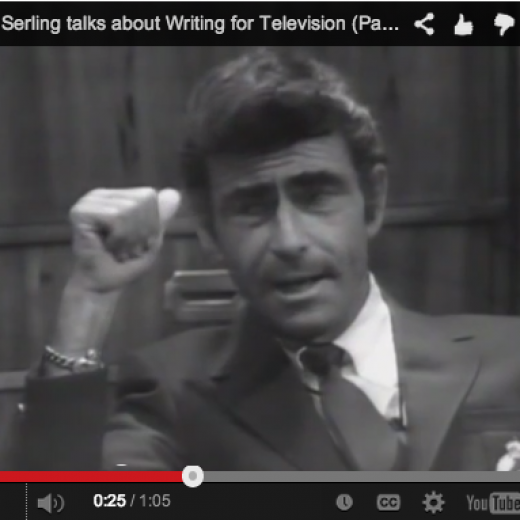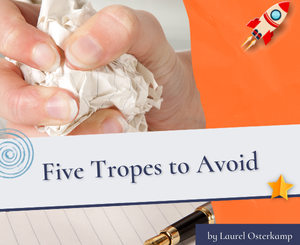Habits of Mind: Curiosity by Bailey Lang
 Let’s welcome back Bailey Lang as she shares with us “Habits of Mind: Curiosity.” Enjoy!
Let’s welcome back Bailey Lang as she shares with us “Habits of Mind: Curiosity.” Enjoy!
***
Habits of mind are patterns of thinking that determine the shape and success of our writing practice.
The last post Habits of Mind Overview by Bailey Lang · Writer’s Fun Zone, identified eight habits of mind that matter for writers, and today, we are talking about curiosity.
What is Curiosity?
The framework for this series of articles defines curiosity as “The desire to know more about the world,” which is a good starting point!
The desire to know more about the world is behind every small child’s eternal question: Why?
Curiosity drives us to lift a rotten log, pause in the hallway to try and overhear what’s going on in that budget meeting, or read a book about the history of salt.
It feels almost silly to point out that curiosity is an essential habit of mind for writers — like, duh, of course it is! — but stay with me.
Right now, it can feel like we have all the tools we need to satisfy our curiosity (“Let me Google this actor, I know him from something else.”)
We’ve gotten used to asking a question, whipping out our phones, and getting an immediate hit of information, which is increasingly likely to be an AI-generated summary.
As writers, we can do better at cultivating curiosity in a way that serves our writing.
How do Writers Cultivate Curiosity?
In her fantastic book, Wrede on Writing, Patricia C. Wrede, Wrede on Writing, talks about three types of research writers conduct:
- Accidental — “Paying attention to whatever is going on around you because everything is material.”
- General — “Going looking for things you don’t know that you need to know.”
- Specific — “What you do in order to find out the things you know you need to know.”
These modes of research lend themselves neatly to practical ways of fostering curiosity as a habit of mind.
Accidental research requires cultivating curiosity as part of your daily life.
Anything you encounter could become important for the next story you want to tell.
Getting curious about everything around you — what things look like, sound like, smell like; why people act the way they do — sets you up to be a better observer, deeper thinker, and more interesting storyteller.
General research helps you take your new habit of mind to a more advanced level, encouraging you to explore topics that relate to your writing or that simply strike your fancy.
As someone with curiosity as a core habit of mind, you’ll find interesting ideas lurking in unexpected places.
Reading nonfiction, listening to history podcasts, and watching documentaries will spark interesting story ideas.
Specific research involves a deeper dive into a topic, probably related to the book you’re writing — whether fiction or nonfiction.
Conducting specific research helps you cultivate curiosity by encouraging you to find useful information, evaluate your sources, and think about how you’ll use important details in your writing.
As Wrede puts it, “If I have a character who speaks thieves cant, I reach for my copy of The 1811 Dictionary of the Vulgar Tongue. If my characters are mixing up a potion, I look through my various herbals in search of ingredients…”
Specific research is also how you avoid making silly mistakes, like having a character cross the Golden Gate Bridge in a story set in the 1920s (the Golden Gate Bridge wasn’t open to the public until 1937.)
Curiosity as a habit of mind can become part of your everyday approach to the world and support focused, active inquiry into particular subjects.
The first step to strengthening your curiosity is recognizing its importance and looking for opportunities to indulge in it.
Curiosity-Generating Activities for Writers
Engaging curiosity can be as simple as asking, “Why?” more often.
However, I’ve got a few other activities to recommend that lend themselves especially well to curiosity and writing.
The more of these activities you do — and the more often you do them — the more you’ll strengthen curiosity as one of your core habits of mind.
Make a General Curiosity List
Spend five minutes writing out a list of all the things you’re already curious about, whether or not they’re related to any of your current writing projects.
- What topics appear on the list?
- How can you start following your curiosity about some of those topics?
Visit the Library
Go to your local library — in person, if possible! — and wander the nonfiction stacks.
Look at book titles and descriptions until something jumps out at you. If you’re feeling especially brave, grab a book at random!
Check that book out, read it, and write down things that struck you as you read.
This list could include interesting new facts, story ideas, character ideas, and additional questions for future research.
Track Your Accidental Curiosity
Wrede notes that accidental research is part of how we, as writers, move through the world.
Sometimes, we get so caught up in the day-to-day that we stop paying attention.
Tracking your accidental curiosity is a great way to get back in the groove.
Over the next week, keep a record of all the things you notice that make you curious.
You can write these down in an app or physical notebook — but make an effort to document things.
- Did you Google something? Put your question on the list.
- Did you hear a bird outside your window and wonder what it was? On the list it goes.
- Did you find yourself wondering why your boss worded an email like that? Make a note.
- Did you catch yourself thinking about all the what-ifs that might have led you (or someone else’s) down a different path? You guessed it: put it on the list.
At the end of the week, take stock of all the things you were curious about.
- What questions did you ask?
- What did you notice?
- What did you want to know more about?
This information will sharpen your sense of curiosity — and may even lead you to your next great story idea.
Reading Recommendations
- Wrede on Writing (Affiliate link)
- A Curious Mind: The Secret to a Bigger Life (Affiliate link)
- Beyond Anxiety: Curiosity, Creativity, and Finding Your Life’s Purpose (Affiliate link)
***
About the Author
 Dr. Bailey Lang is a book coach, writer, and editor. At The Writing Desk, she helps authors build sustainable, enjoyable writing practices that take their books from draft to done. Bailey has a PhD in rhetoric and writing studies and loves geeking out about writing.
Dr. Bailey Lang is a book coach, writer, and editor. At The Writing Desk, she helps authors build sustainable, enjoyable writing practices that take their books from draft to done. Bailey has a PhD in rhetoric and writing studies and loves geeking out about writing.
You can sign up for Bailey’s free newsletter, Word to the Wise, for more writing advice and regular author interviews.






